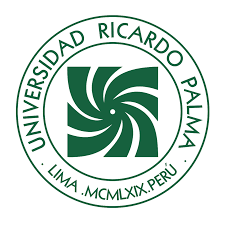The permanent deformation in the asphalt mixtures and the consequent deterioration of asphalt pavements in Perú
DOI:
https://doi.org/10.31381/perfiles_ingenieria.v2i11.402Keywords:
Permanent deformation,, asphalt mixes, rheologic behavior, rutting, cracking due to fatigueAbstract
In recent years, Peru has promoted a favorable policy for the construction of road works throughout the territory, for which more than 15,000 kilometers of roads with asphalt pavements have been built, according to reports from the Ministry of Transport and Communications, the agency in charge of the national road network. Given this reality, there is an urgent need to improve the technology of asphalt pavements in Peru, so that they achieve the useful life for which they were designed. Permanent deformation is one of the most worrying failures in the deterioration of pavements and it is necessary to know its fundamental causes in order to take appropriate precautions in the stages of project development, construction and future maintenance. For this reason, it is essential that various tests and analyses be carried out in Peru using specialized laboratory and field equipment, which allow the evaluation of the pavement structure to avoid permanent deformation. This leads to the need to develop new technical specifications for asphalt mixtures that, depending on the results of the analysis, may include the use of modifiers such as polymers, rubber powder and the application of SUPERPAVE technology for a better characterization of the constituent materials of the asphalt mixture, with the purpose of increasing the durability of asphalt pavements.
Downloads
References
Bariani, L., Goretti, L., Pereira, J., y Barbosa, J. (2009). Pavimentación Asfáltica. Formação Básica para Engenheiros. Brasil: s/e.
Chang, C. y Freeman, T. (2007). Implementación de la Guía de Diseño Mecanístico de Pavimentos NCHRP 1-37ª en Texas.
Huamán, N. (s/f) La Deformación Permanente en las Mezclas Asfálticas y el consecuente deterioro de los Pavimentos Asfálticos en el Perú. (Tesis para optar el grado académico de Maestro en Ciencias con mención en Ingeniería de Transportes).
Huamán, N. (2005) Los Pavimentos Asfálticos y la Tecnología de Punta. Comunicación presentada en XIII Congreso CILA. Costa Rica.
Huamán, N. (2008). El Estado del Arte de los Pavimentos Asfálticos. Lima: s/e.
Huauya, O., Chang C. (2007). Evaluación del Riesgo Potencial de Ahuellamiento en Mezclas Asfálticas Utilizando el Equipo MARC”, Lima: FIC - UNI.
Downloads
Published
How to Cite
Issue
Section
License
Copyright (c) 2016 Néstor Huamán Guerrero, Carlos M. Chang Albitres

This work is licensed under a Creative Commons Attribution 4.0 International License.
In the event that the manuscript is approved for its next publication, the authors retain the copyright and assign to the journal the right of publication, edition, reproduction, distribution, exhibition and communication in the country of origin, as well as in the abroad, through print and electronic media in different databases. Therefore, it is established that after the publication of the articles, the authors may make other types of independent or additional agreements for the non-exclusive dissemination of the version of the article published in this journal (publication in books or institutional repositories), provided that it is explicitly indicated that the work has been published for the first time in this journal.
To record this procedure, the author must complete the following forms:

1.png)








